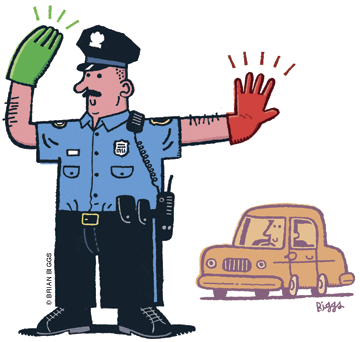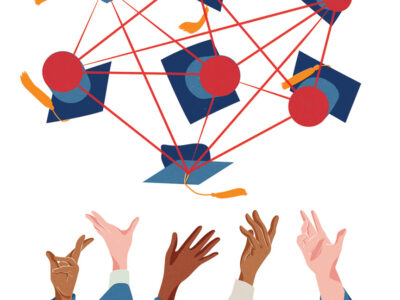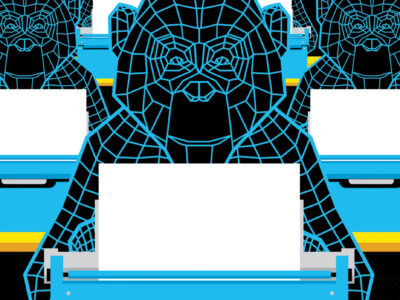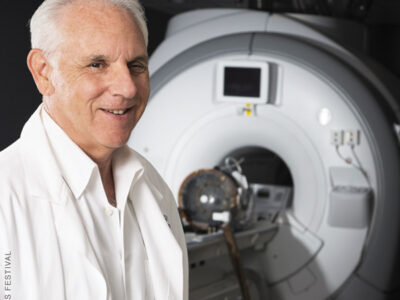
If great inventions are born of small irritations, Li Yi C’10 has a patent-filled future ahead of him.He hates it when elevators stop just because someone pushed a floor button by mistake. And what’s the deal with ice-cream scoopers that can’t make a dent in frozen-solid Double Fudge Chunk? Can’t someone put a heating coil in those things? Not to mention the postprandial remorse routinely felt by overstuffed gourmands in his native Singapore. “There’s a lot of supplements that increase your metabolic rate,” Yi says. “Why not sell them in vending machines outside of restaurants?”
Yi doesn’t have a prototype for an elevator button that cancels superfluous stops, but that didn’t stop his proposal from reaching the finals of the inaugural “2nd Best Idea Slam” at the Weiss Tech House in February. In contrast to the Tech House’s annual PennVention competition, which features innovations that you can actually see and touch, the Idea Slam was all about breathing life into back-burner concepts that aren’t quite ready for primetime.
“We’re always trying to spur students and excite students around innovation,” says Weiss Tech House director Anne Stamer G’97. “This is the first opportunity we’ve had to let our community in on the judging process. It’s kind of like the American Idol version. And it was really fun.”
Participants threw their ideas into the ring by means of the Darwinator, a web-based tool invented by Karl Ulrich, the CIBC Professor of Operations and Information Management. The online software required everyone who submitted an idea to rate several more, whittling the field of 126 entries down to 10 finalists who were invited to deliver their three-minute pitches in person. A panel of judges awarded the top honor—along with an iPod—to Kevin Galloway EAS’04 Gr’08 for an idea that came to him while driving down University Avenue during a nighttime power outage.
“All the lights were out, the stoplights were out also, and they had police officers at most major intersections directing traffic with flashlights,” the mechanical-engineering Ph.D. candidate explains. “It was kind of confusing. You’ve got this guy with a flashlight; it’s hard to know what he’s telling you to do, and it’s hard to see people. And I thought, ‘Well, all drivers understand green and red lights.’” His solution: a glove embedded with LED lights that could toggle between colors when cued by a hand gesture or the flick of a switch.
Bioengineering major Chrysta Irolla C’08 took the Audience Choice Award for a proposed medical device inspired by her stint building prosthetic legs for Chinese amputees in Guangzhou last summer. The patients she worked with frequently complained of pressure-induced pain in specific parts of their legs. She reasoned that a “smart sock” capable of dispersing that pressure over a larger area might solve the problem. Such a material would be embedded with pressure sensors and dielectric elastomers, and might have a variety of uses, she said.
In the wake of the contest, Irolla now plans to apply to the Weiss Tech House’s Innovation Fund next year for money and space to turn her idea into a prototype. She’s also thinking about going to grad school for prosthetics and orthotics.
As for Li Yi’s elevator “undo” button? “It’s a value to people riding the elevator,” says contest judge Daniel Sabido. “We’d like to see it. But it’s not necessarily the best thing to start a company around.”
That doesn’t bother Yi. He’s got plenty of ideas.—T.P.




